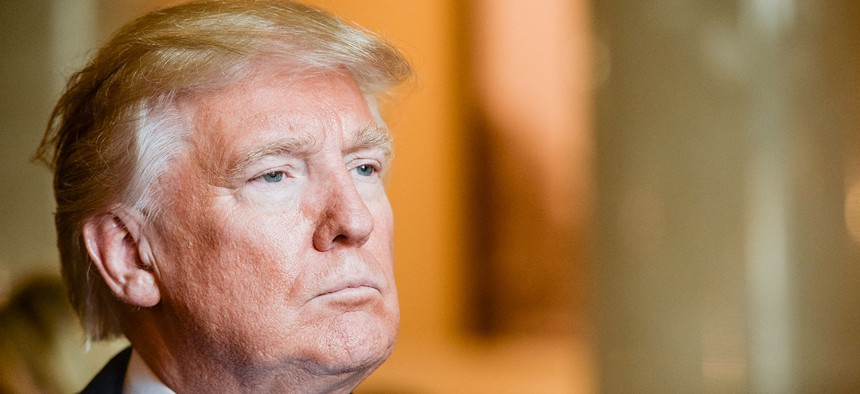
Sgt. Alicia Brand/Army
Trump Has Raised His Approval Ratings by Embracing His Inner Bomb
The traditional "rally-'round-the-flag" moves are paying off.
Since before he became president on Jan. 20, Donald Trump’s approval ratings have been low, to say the least: Trump has consistently registered lower than any president in recent history, even when comparing his performance with predecessors dealing with especially difficult circumstances (the Great Recession, for instance).
As of April 18,—88 days into his term—Trump’s approval rating is 39% according to the Marist Poll, 41% per Gallup, and 40% per a CBS News poll. Low as these numbers may be, there are good news for the president, significantly up from the end of March, when at 35% according to Gallup, Trump had its worst rating ever.
The trend has flipped upward for Trump. And it’s not because his record on keeping electoral promises has significantly improved. No, something else looks to be the cause of his increase in popularity—war, or the threat of it.
Since April 6, the president has turned his attention to military actions. He hit Bashar al-Assad with a Tomahawk-missile strike after the Syrian dictator unleashed a chemical attack on his own people; he threatened North Korea (and its leader—whoever that may be); his air force dropped a huge bomb on ISIL in Afghanistan, and he sent dozens of troops to Somalia to help the fight against al Shabaab.
The Syria bombing in particular, news of which Trump shared with his Chinese counterpart over a “beautiful chocolate cake,” gained Trump a new wave of respect from political commentators, especially many otherwise critical of his administration. They rushed to declare his action “presidential” and praise his noble intentions in the Syria attack.
Despite his international moves signaling a switch from his “America first” campaign stance, the public reacted similarly to the press. Call it a mild case of the “rally effect,” that surge in popularity experienced by presidents in times of war and international tensions, as the country “rallies ’round the flag.” Through the recent history of the US, war and conflict have boosted the popularity of several presidents, for extended periods of times—here is a breakdown, via Gallup:
In history, the “rally effect” has boosted presidents’ popularity as much as 35 points (Bush after 9/11), though the increase for Obama after the killing of bin Laden was significantly smaller. So far, the bump for Trump has been comparatively small—though his exploration of America’s military power seems to have only just started.







